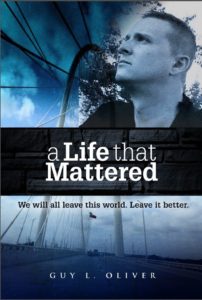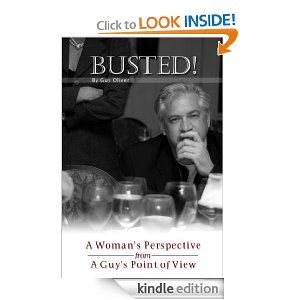“It has been my experience that folks who have no vices have very few virtues.”
This maxim from Abraham Lincoln has a ringing truth but the ring is hollow. A comment about human nature that lacks commentary. A sound-bite that is easily remembered, but does not speak to the whole truth.
 I, myself have a number of vices. Some suggest they are harmless, near typical activities for an adult male my age. Others find them repugnant and offer a scolding rebuke behind my back. I drink too much. I carry a pistol. I frequently discuss so-called unpatriotic ideals such as Texas secession from the union. Admittedly, such things can hardly be compared to other less socially acceptable activities such as using heroin—but they certainly can promote antisocial and unlawful behavior when they are not properly controlled by the practitioner.
I, myself have a number of vices. Some suggest they are harmless, near typical activities for an adult male my age. Others find them repugnant and offer a scolding rebuke behind my back. I drink too much. I carry a pistol. I frequently discuss so-called unpatriotic ideals such as Texas secession from the union. Admittedly, such things can hardly be compared to other less socially acceptable activities such as using heroin—but they certainly can promote antisocial and unlawful behavior when they are not properly controlled by the practitioner.
I once knew someone who apparently had no vices. He was a man—a native Texan in his 50s mind you—who shunned weapons, didn’t drink, drove a hybrid automobile, and generally lived a quiet life of reading books. This despite his job, in which he entertained scores of calls each day assisting finance managers at GM auto dealerships with the endless maze of financial software and paperwork they were required to use.
Now I suppose reading could be considered a vice, depending on the content. And I further suppose that avoiding weapons while caring about the environment is considered socially conscientious. But the apparent lack of any discernible relief valve is disconcerting from my vantage point. I fear he might one day snap and go on a shooting spree or fly a plane into a building.
The opposite side of that coin, however, is that vice without virtue has no value; if you accept the first premise, (in my opinion) you must own the other, and while vice is tolerated and notable, it is always the unnoticed virtue that wins the day. That virtue is not an act, but virtuous behavior is born out of a desire for decency—a drive to leave the world better than you found it. Most of us embody both.
Witness my oldest progeny and only son. I didn’t know quite what to make of his travels as I watched him grow into manhood, always seeming to choose the road to perdition. He was just released from prison on parole from a 10-year sentence, for a meth-induced crime spree. A convicted felon multiple times over, I simply breathed a sigh of relief that his crimes were not violent and that his life was spared. Instead of college and a job, or military service he chose drugs, debauchery, and crime. The stranglehold of drugs tragically asserted the outcome.
Vice.
Yet as a child he was profoundly sensitive and frequently put his younger sisters’ welfare ahead of his own. I still recall a particular day when his mother told me that she took the three of them to a McDonald’s drive-through for lunch, an exceedingly rare treat at that time because we were poor.
When they made it home his mother realized they had shorted the order by mistake, and in that circumstance he gave up his burger to his sisters without hesitation.
Virtue.
I have a very dear friend for whom I worked about three years before her manager fired me. For most of that time she was a punitive tyrant during work hours and I was frankly a little relieved when I lost my job because walking the line between friendship and work was nearly impossible. Only one of many casualties of her wrath, the terrible jaws of obsession with a thing being done “the right way” compounded by the need to punish offenders tested our friendship to its limits.
Vice.
Juxtapose that reality, however, with a poignant moment of loss—the death of a loved one. Last December this same friend escorted her Jack Russell Terrier to Rainbow Bridge. She talked at some length about the difficulty of making that decision, and how she felt like she was playing God, and the heartbreak of watching her beloved pooch take her last breath. Last Monday at lunch she sat across a table from me and grieved yet again a year later—but she never left her companion’s side seeing her through to the very end.
Virtue.
Then there’s my friend Tom who mentioned some time ago that his kid brother Frank who suffers from multiple sclerosis was admitted to hospice. He spent Thanksgiving with distant family members entertaining repeated questions about Frank’s well-being as they trickled in one at a time. Over and over he was asked the same question: “How’s Frank?” And over and over he had to explain that his brother was dying.
Last Saturday he was supposed to meet my friends and me for brew and pub grub. He chose instead to spend the day and the subsequent evening with his two Border Collies, while he drank to stuff the pain. He succumbed to the temptation to temporarily anesthetize the pain of the impending separation from a loved one, which ultimately and cruelly prolongs the suffering.
Vice.
And then there is the matter of my wife’s 96 year-old grandmother, Maxine, who suffers from Alzheimer’s disease and is functionally blind and deaf. I’m told that Maxine is coming to the end of her journey here on Earth. That although no one is willing to say how much time she has left with us, she is winding down at an ever-accelerating pace. A metaphorical tailspin, if you will, from which there is no escape and is ushering in both certain and swift demise.
My sister-in-law who lives with us has spent countless nights with Maxine in her bed, many of them ending any hope of blissful slumber, being awakened by her at 3:00 a.m. My wife has tirelessly changed countless diapers and ministers to her though unending trips to the bathroom, nearly a thousand baths, and even more questions as Maxine tries in vain to ascertain her current circumstance.
Virtue.
I watch as my wife and sister-in-law lose their patience with her, an adult child who is no longer capable of being responsible for even the most basic tasks of eating, bathing, and using the restroom. I listen as they each raise a voice while speaking to her in part to overcome her hearing impairment and in part out of frustration.
I sigh and respond with annoyance as she unendingly interrupts conversations with family over morning coffee, attempting to comprehend the most basic of information such as where she is and what she is supposed to be doing. These are the moments of fierce impatience that prevent charity when it is most needed by a loved one.
Vice.
One weekend not long ago, after my friends and I disbanded our weekly Saturday outing with beer and bar food, one of them, Fran, followed me to my house. Three women had gathered with my wife and sister-in-law to spend a few hours with Maxine as she continues her journey into the unknown, believing that the end is at hand.
We sat in the living room and listened as Maxine complained of a sore lip from a fall two nights ago, cramping joints, and a general discomfort caused by a near-century of time here on this spinning, blue orb. And then, without any apparent context, my sister-in-law began to speak. With a sense of the inevitable nature of Maxine’s circumstance, she began to talk about how she awoke early that morning to find Maxine crawling on her hands and knees toward her bed.
I watched as her eyes became glassy and she tried in vain to hold in the grief as reality once again overtook her like a swelling tsunami. I placed my glass of Maker’s Mark on the table top next to my chair and crossed the room to sit with her. I placed my hand on her back as she briefly wept, unable to contain the emotion any longer.
The moment passed and I returned to my seat as Maxine began to speak again:
“My feet are cold.” From across the room Fran replied “Your feet are cold?” Maxine repeated her assertion: “My feet are cold.” He set his beer down and stood up. With a sense of purpose he crossed the room, knelt at her feet and began massaging them through her terrycloth slippers.
“That feels good; your hands are warm.” Fran silently continued.
The symbolism was blinding. Emblematic of the good in each of us, an able-bodied man bowed at the feet of an elderly woman and ministered to her comfort as her season was drawing to a close. A simple act of kindness that cost him nothing but that did require humility. Maxine smiled.
Virtue.
Guy-o



Interesting play between virtue and vice — great substance and feeling here, and I especially appreciate the narrator’s conclusion, which shows a depth of character and richness of thought.